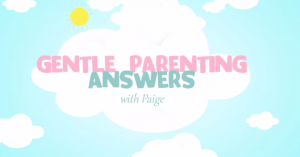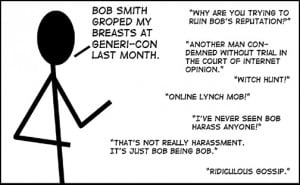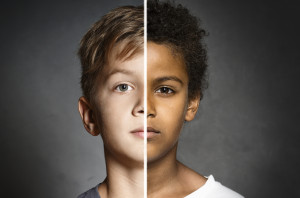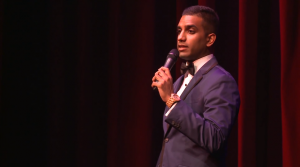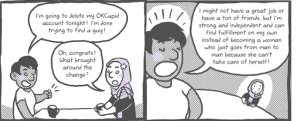It always bums me out when transgender folks in my community tell me that they will never identify as a feminist.
I don’t doubt the validity of their fears or frustrations. Feminism, as a historical movement, has not always succeeded in being inclusive, particularly around issues of race and class.
Quite recently, there’s been a lot of hoopla coming from folks claiming to be “radical feminists” who are bent on pushing trans people, particularly trans women, out of the movement. They may not define feminism, but for some folks, this has defined their experience with the movement.
But my experiences in feminist circles has been crucial for my growth as both an activist and as a trans person.
In fact, it was in a feminist philosophy class as an undergraduate that I first encountered the word “genderqueer” – which I would later claim with pride. It was my feminist peers who handed me a Kate Bornstein book and told me not to be afraid of the possibility of being transgender.
While we will all have our own experiences with feminism, the feminism that I know – simply put, a movement for social justice, particularly focused on ending gender-based inequality – has energized me, challenged me, and empowered me.
“Empowered you?” many trans people ask me. “How?”
I’m glad you asked. Let’s start with four ways:
1. Feminism has taught me to challenge my own stereotypes and make room for diverse gender expression.
“Wait,” you might be saying. “That’s a trans issue!”
Yes! It is! That’s because so often, trans issues are often feminist issues, too.
Feminism, for me, has always been about possibility – creating a world where each and every person, regardless of their gender, can reach their full potential without encountering the limitations of discrimination and other forms of marginalization.
Part of that equation is challenging gender stereotypes.
For example, challenging the stereotype that women are weak or less intelligent opens up the possibility for more women to take on leadership roles. Challenging the idea that men must be stoic can allow men to express their full spectrum of emotions and be nurturing or sensitive without feeling that it undermines their masculinity.
If feminism does indeed actively challenge gender stereotypes, then that makes room for a more diverse expression of gender as well.
This allows people, regardless of their gender, to express themselves in whatever way feels authentic, instead of following a social script that tells us who we can and cannot be.
As a transmasculine and genderqueer person, feminism’s challenging of gender stereotypes allows me to claim my masculinity, but define it on my own terms.
I can write the script to my life without feeling pressured to conform to what society’s script for masculinity looks like.
Feminism has given me permission to be myself, whatever that looks like, knowing that it isn’t a threat to my identity – and it doesn’t make me less valid as a queer, masculine person.
2. Feminism has encouraged me to question gender essentialism and the binary.
It was in my feminist theory courses as an undergraduate that I learned about the gender binary – and it dawned on me, like a giant light bulb exploding over my head, that the binary didn’t work for me.
It was as a feminist that I first recognized the strict categories of “man” and “woman” that we are assigned without consent and, over time, learned about the many possibilities that exist outside of that binary.
Feminism was where my journey as a trans person began. It was where I learned the vocabulary – transgender, transmasculine, genderqueer, non-binary – that would later form the very foundation of who I am today.
Feminism questions damaging ideas like essentialism – that our biology is our destiny, and that biology is objective and absolute – allowing us to be our authentic selves with the knowledge that chromosomes and genitalia will never invalidate our identities.
Feminism taught me that my biology does not determine who I am and that my gender identity is not contingent upon my body.
I’m not a walking set of chromosomes, but rather a whole person whose identity is determined by myself and myself alone – not by a doctor at my birth, or a society that is stuck on the idea that there are only two options, and believes that my genitals say more about me than my own truth and lived experience.
Feminism helped me to get in touch with my identity as a genderqueer person and encouraged me to question a binary that prevented me from seeing the possibilities of gender that had, at first, existed outside of my imagination.
3. Feminism has demonstrated just how much the personal is political in my own experience – and in that of so many others.
A crucial part of feminism is framing personal experiences in a broader, political context.
What I mean is, realizing that our everyday lives are impacted by systemic forces – our personal experiences can sometimes point to larger issues at play.
As a trans person, this realization is crucial for me. It helped me to realize, first of all, that my experiences of discrimination, fear, and even violence were not just personal problems that I was having, but rather, part of a system that disadvantages trans folks.
That realization was huge for me. It not only helped me to realize that it wasn’t my fault, but it gave me insight on the forces that impact my own life.
I could see the pressures to be thin, for example, were part of a diet culture and industry; I could recognize the lack of representation of queer people impacting my self-esteem; I could see the ways that I was being gender policed as I transitioned, and I placed it in a bigger framework beyond my small life.
Understanding that the personal was actually political gave me a greater understanding of my oppression, as well as a deeper sense of compassion when I engaged with other marginalized people.
It helped me see the ways that my struggles weren’t just personal problems or issues – it was something bigger, a system that was intentionally built this way.
Often times, marginalized folks are made to feel like their oppression is their own fault. That it isn’t rape culture or an epidemic of rape, but instead, what they were wearing or how much they had to drink.
In my case, I was made to feel that dressing in a masculine way, for example, was the reason I experienced street harassment.
Blaming the victim is a dangerous way that the system is upheld and unchallenged, and it minimizes the political implications of our personal experiences.
Understanding how powerful and important my personal experiences were made me feel both angry and empowered.
Angry, because it’s difficult to see the ways that you and many others are disadvantaged, but empowered, because it creates a greater urgency to make a difference.
Feminism placed my life as a trans person in a political context, which gave me insight into my experiences, but also helped me understand just how important our stories really are if we’re going to make an impact.
Activism isn’t just about what’s happening outside of us – it’s about our own lives, and the messy, complicated ways that our stories are perhaps the most truthful accounts of how damaging these injustices really are.
4. Feminism has liberated me enough to think compassionately and intersectionally.
My experiences as a white, queer, transgender person with a disability will be markedly different from a low-income, trans woman of color.
The various facets of our identities impact our experiences, so that two transgender people, for example, still won’t experience being trans in the same way.
Intersectionality is a hugely important concept that I learned from feminism, and it helped me to understand the experiences of others in my community and beyond it, as well as understanding my own experiences.
I know, for example, that being a transgender person with bipolar disorder makes my experience of my gender quite complicated, in ways that neurotypical trans folks will not experience.
Claiming the whole sum of my identity, and validating those experiences, has been empowering for me as a neuroatypical trans person.
Rather than splitting myself up, or trying to examine my identity piece by piece, it’s been helpful to look at myself as a whole person, and see the ways that different parts of my identity intersect to create a really specific experience of queerness and disability.
Being able to see myself as a whole person has been key in my own practice of self-love and self-affirmation.
There are also a lot of good reasons to be intersectional as an activist and a feminist.
It’s impossible to understand oppression and injustice if you are only looking at someone’s experiences through one lens, instead of seeing the ways that their whole identity compounds to create a unique experience of their oppression.
I couldn’t be an ally to other trans people if I didn’t understand the ways that racism impacts the experiences of my trans siblings of color; I couldn’t be an ally to trans women if I didn’t recognize the ways that transmisogyny is very different from the transphobia I experience as transmasculine.
The struggles I face may have parallels with my other trans siblings, but understanding how I benefit from white privilege and masculine privilege ensures that the ways I support my siblings do not focus exclusively on my understanding of what it means to be trans – otherwise, I am really only helping myself.
Understanding intersectionality has been empowering, both in understanding my own experiences, as well as being better equipped to be a good ally and effective activist.
***
I don’t think that being trans and being a feminist are mutually exclusive. I am out and proud as a trans feminist, and I feel immense joy as I see others in my community that I look up to – like Laverne Cox, Janet Mock, and so many others – unapologetically claiming their feminism, too.
Feminism has given me an incredible amount of insight into my own experience, as well as the experiences of others – and I think that I’m better off because of it.
Feminism is not infallible. It is not perfect. But despite its flaws, I still believe that feminism has empowered me and helped me to think critically about the systems that impact my community and so many others.
Feminism can and does empower countless trans folks – and by claiming our feminism, we make this movement stronger, too.
[do_widget id=”text-101″]
Sam Dylan Finch a Contributing Writer for Everyday Feminism. He is queer writer, activist, and educator based in the San Francisco Bay Area. In addition to his work at Everyday Feminism, he is also the founder of Let’s Queer Things Up!, his hella queer and very awesome blog. You can learn more about him here and read his articles here. Follow him on Twitter @samdylanfinch.
Search our 3000+ articles!
Read our articles about:
Our online racial justice training
Used by hundreds of universities, non-profits, and businesses.
Click to learn more
Most Read Articles
- « Previous
- 1
- …
- 30
- 31
- 32






